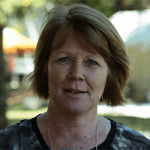More South Australians Struggling – Health and Housing

28 February 2019 at 8:25 am
Dr Alice Clark, the executive director of Shelter SA, reflects on the links between housing and health, following the release of a report looking at prescription data from people experiencing homelessness in Adelaide.
Since 2007, the number of South Australian households surviving on low incomes who are struggling to pay their rent has almost doubled from 22 per cent to 40 per cent, so chances are, you know someone in this situation.
Health and housing are inextricably linked – where you live affects your health and your health can affect where and how you live.
We know that people who are living somewhere that is not affordable, safe, or secure, experience worse health and more chronic diseases than the general population.
For rough sleepers, that’s not so difficult to understand if they are exposed to the weather for long periods of time, but it’s harder to think of people who have a roof over their heads (of some description) being in the same situation.
The Emergency Relief Scheme is funded by the Commonwealth government and administered by local South Australian not for profits. Emergency relief is available three times per year to individuals with concession cards, essentially to alleviate the symptoms of poverty.
People can obtain food and other basics through the program, but it also assists people to access the prescription medicines they need.
Shelter SA obtained a small amount of de-identified data from one of our member organisations about the medicines being accessed through the scheme.
We learned that our study cohort, received more prescriptions for pain and mental health related issues than the general population.
The service providers who administer the scheme were unsurprised by our findings. They said that people living in poverty and accessing medicines this way would almost certainly be “precariously housed” or sleeping rough, and experience difficult living circumstances – people live with chronic stress.
They said that if someone was living with chronic pain, they would be less likely to receive the therapeutic interventions that could help, like physiotherapy or joint replacement and have to make do with painkillers.
We always talk about affordable, safe and secure housing as the antidote to precarious housing and homelessness, but we must pay attention to the ongoing health needs of the thousands of South Australians doing it tough and living with unaddressed pain, mental health issues and ill-health.
Housing is a social determinant of health and a basic human right, but housing and health policies do not identify strategies or targets to ensure the good health of all South Australians, and this needs to change.
As well as an investment in social housing, we need to rethink how we provide emergency relief, recognising the growing number of people living in poverty and experiencing homelessness, to make critical assistance available more than three times per year.
Clark’s comments are based on a report published last year. Using data from emergency relief programs at Baptist Care SA, this research focused on how a lack of safe and affordable housing negatively impacts health for individuals experiencing precarious housing situations. It concluded that affordable, safe, secure and appropriate housing is a critical factor in the prevention of ill health in vulnerable populations in Australia.
About the author: Dr Alice Clark is an experienced social scientist who specialises in research, policy analysis and community engagement with over 30 years’ experience in the non-government and government sectors. She is currently the chairperson of National Shelter and the executive director of Shelter SA, the peak body for housing in South Australia.







